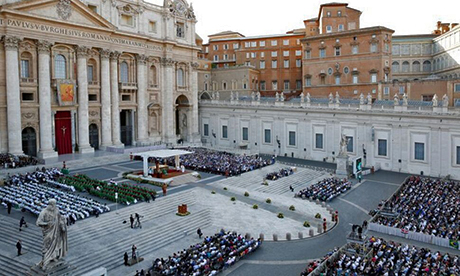The Vatican has issued a new investments policy to ensure they are ethical, green, low-risk and avoid weapons industries and health sectors involved in abortion, contraception and embryonic stem cells.
The policy requires Vatican departments to close investment accounts held in foreign banks and transfer them to the Vatican.
The new policy was approved by Pope Francis and signed by Jesuit Father Juan Antonio Guerrero Alves, prefect of the Secretariat for the Economy. It will go into effect on an experimental basis for five years beginning on 1 September.
The new rules will ensure that investments will contribute “to a more just and sustainable world” and protect “the real value of the Holy See’s net worth and generate a sufficient return to sustainably contribute to the financing of its activities,” said a statement published on 19 July by the Vatican Secretariat for the Economy.
“The decision to invest in one place rather than another, in one productive sector rather than another, is always a moral and cultural choice,” one of the principles of the 20-page Investment Policy Statement (IPS) says.
The Administration of the Patrimony of the Holy See (APSA) will oversee the Vatican-based investments, estimated at just under 2 billion euros (NZ$3.28 billion).
The IPS is a radical overhaul after years of financial scandals. It strips all Vatican departments of the ability to invest their funds independently.
The existing practice allowed the Secretariat of State to invest directly in a London building at the centre of a corruption trial. The botched deal resulted in a loss of 140 million euros. All the defendants have denied wrongdoing.
“The fundamental objective is to discipline investments and centralise them,” said a senior Vatican official, speaking anonymously. “It is more organised, more controlled, more transparent, definitely a step forward.”
Discussing finances in an interview with Reuters this month, Pope Francis gave the example of priests who had no financial experience being asked to manage the finances of a department and who, in good faith, sought outside help from friends in the outside financial sector.
“But sometimes the friends were not The Blessed Imelda” the pope said, referring to a 14th-century 11-year-old Italian girl who is a symbol of childhood purity.
Francis blamed “the irresponsibility of the structure” for past financial scandals.
